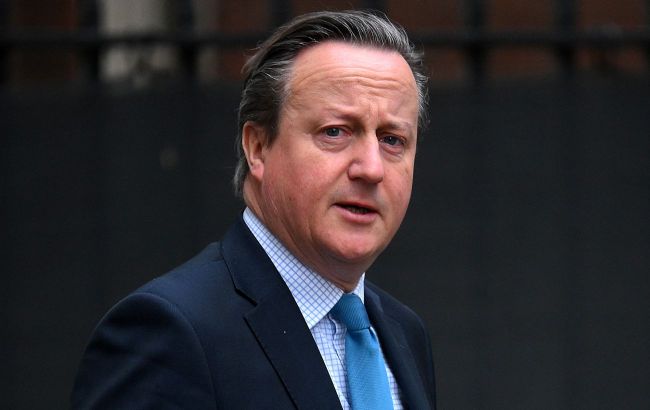Cameron accused Israel of blocking aid checkpoints in Gaza Strip
 Photo: David Cameron, British Foreign Secretary (Getty Images)
Photo: David Cameron, British Foreign Secretary (Getty Images)
British Foreign Secretary David Cameron accuses Israel of blocking crucial crossing points for providing aid to Gaza. An Israeli official attempted to refute this accusation during an online debate, after which he was removed from his position, reports The Guardian.
In his letter, Cameron explained the problems with aid distribution, which strongly contradicts Israel's claims that the amount of humanitarian aid trucks entering Gaza has reached a satisfactory level.
"You cite claims that international donors should send as much aid as they wish and Israel will facilitate its entry. I wish that were the case. It is of enormous frustration that UK aid into Gaza has been routinely held up waiting for Israeli permissions. For instance, I am aware of some UK-funded aid being stuck at the border just under three weeks waiting for approval," the official noted.
According to him, the main obstacles are refusals from the Israeli government and lengthy permit procedures, numerous checks, and limited daytime access.
He also noted that the average number of trucks entering Gaza per day was 165. Although this is an improvement compared to January, there is still a need for development to increase the figure to 500 trucks per day, as it was before the Hamas attack.
He also stated that one of the key reasons for distribution problems in Gaza was Israel's refusal to issue visas for volunteers.
Food crisis in Gaza
According to the UN, the level of hunger in the Gaza Strip is catastrophically increasing. According to local doctors, "people there have been starving for months." The IPC report notes that the entire population of Gaza (2.23 million people) is experiencing significant food shortages.
Starting from March until mid-July, amid escalating conflict conditions, considering the potential incursion into Rafah, it is expected that half of the region's population (1.11 million people) will be in critical food insecurity.

